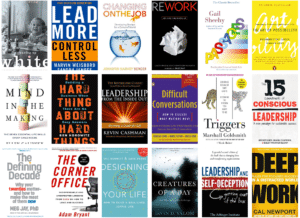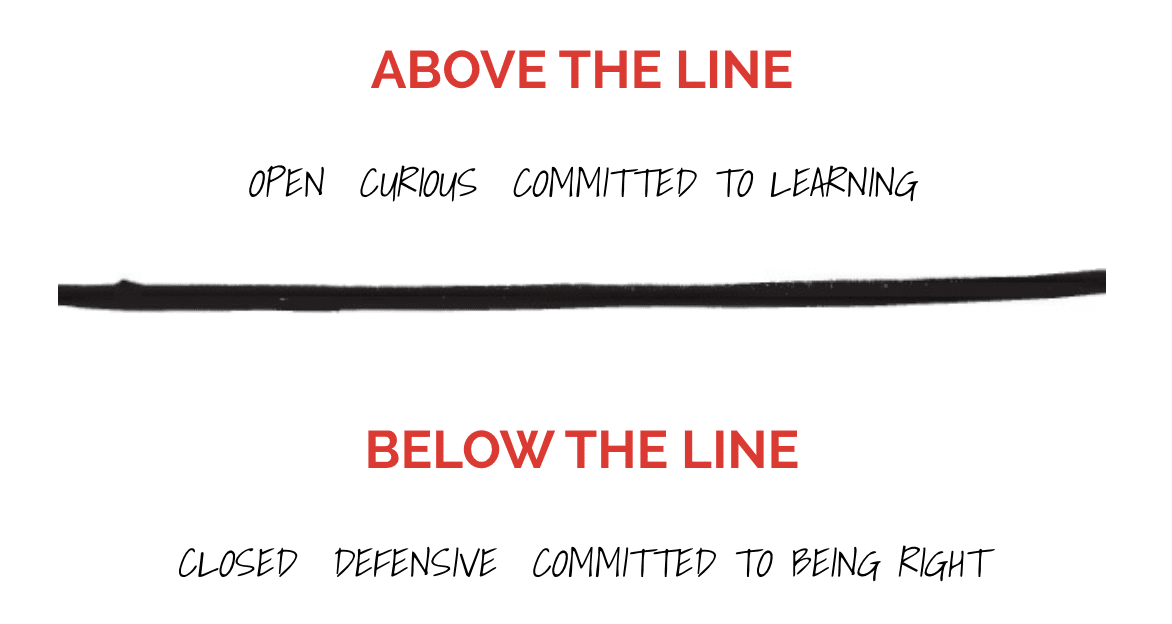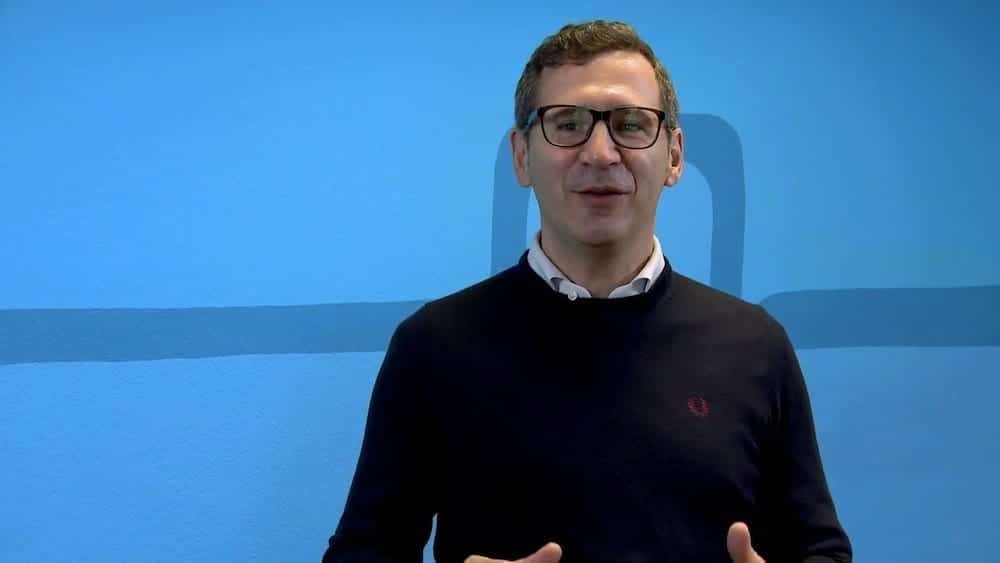Commitment is an act, not a word.
 Our clients know us as voracious readers. By popular demand, we are excited to provide you with select (and growing) reading list. As an additional way to invite readers into new ideas, we will be sharing thoughts about one book per newsletter. (Sign up if you want in the sidebar section…)
Our clients know us as voracious readers. By popular demand, we are excited to provide you with select (and growing) reading list. As an additional way to invite readers into new ideas, we will be sharing thoughts about one book per newsletter. (Sign up if you want in the sidebar section…)
These book summaries are our way of recalling some of our favorite insights from each book. Of course, we also hope to pique your interest in case you wish to read more…
The 15 Commitments of Conscious Leadership
For us, The 15 Commitments of Conscious Leadership may be one of the most influential leadership books we have ever read and continues to be relevant long after our first read. Clearly-written in a contemporary voice (with strong tinges of the west coast), the book delineates the commitments that “conscious” leaders are invited to make if they wish to operate from integrity versus fear.
A key premise to understand about conscious leadership is the “line”. By creating a hypothetical horizontal line on a blank sheet of paper, the idea is that we are all (at any given moment in time) either above the line or below it in our consciousness. When we are above the line, we take responsibility for the circumstances of our lives as well as our emotional and physical well being. We commit to supporting others to do the same. When we are below the line, we revert to blame – either blaming others or ourselves for what is wrong. The refusal to take 100% responsibility – leading to all sorts of “drama” – and, in fact, the authors of the book introduce the Karpman Drama Triangle – named after Stephan Karpman, a student of Eric Berne’s, the father of Transactional Analysis. We can recognize we are below the line when we play the archetypal roles of victim, villain, or hero in unconscious dramas.
If this idea sounds radical, that’s because it is, and “locating ourselves” is the next (and often first) step – that is, becoming aware of, and acknowledging, from what consciousness we are operating in any given moment.
As leadership coaches, and as human beings trying to practice what we teach, the first commitment is a game-changer. If we are frustrated, hurt, angry, or annoyed about something or someone, the first question to ask is, “Am I above or below the line right now?”. And chances are, we are likely below.
Once we locate ourselves, though, the beauty is that at that moment we arrive at a critical (and subtle) decision. Do we want to stay below the line, telling ourselves a story about how we’re the victim, or the villain, or the hero, or do we want to end the drama that’s either going on in our mind or in our interaction with others?
Locating oneself is especially important for leaders since leaders set the tone in their organizations. An organization can’t have a higher consciousness than the leaders who run it. If leaders are operating from a place of taking responsibility for themselves and being curious and self-aware, then they model these ways of being for others in the organization – giving staff a paradigm based in health and integrity. If, on the other hand, a leader regularly reverts to blaming or criticizing others, being disrespectful, demeaning, or leans toward self-importance, then quickly this can create a climate of resentment, cynicism, and gossip.
Living just this first out of the 15 commitments with whole-hearted intentionality will radically enrich how we go about our lives and our relationships.
If these concepts are interesting to you, we encourage you to check out The 15 Commitments for more inspiration and guidance about what conscious leadership can look like.


